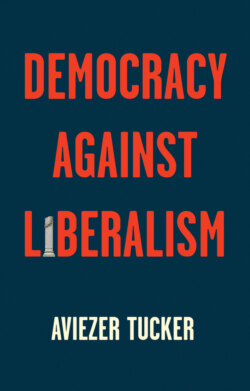Читать книгу Democracy Against Liberalism - Aviezer Tucker - Страница 6
Democracy vs. Authoritarianism
ОглавлениеDemocracy is often over-extended to include liberal institutional and cultural prerequisites. Democracy, civil rights, and the rule of law may well reinforce each other, but most democracies have not been liberal. If democracies that are not liberal and far from ideal in excluding resident aliens, or slaves, or the poor, or women, or have authoritarian elements, are excluded from the pure and pious democratic ideal, democracy becomes a utopian normative ideal that may not fit any historical regime and cannot explain the political world. Many democracies, including all the ancient ones, were surely more distant from the authoritarian pole than the democratic ideal pole, though none was liberal or respected rights. I use a minimal measure of democracy as the degree to which the government represents the citizens’ political choices in free and fair elections. On one pole there are authoritarian regimes that do not represent their citizens, while on the other pole there is pure proportional representation without a threshold, where all the citizens and residents vote. Hybrid authoritarian–democratic regimes that combine authoritarian features with limited political competition and unfair elections are in the middle (Levitsky and Way 2010). Closer still to the authoritarian pole are authoritarian regimes that allow limited representative elections, though the representative bodies do not govern, but represent or advise. Authoritarian regimes, by contrast, do not represent the political choices of their subjects, even when they reflect them. Even when the policies of an authoritarian regime happen to agree with what its subjects would have preferred had they been given the choice, they are not given the choice, and the regime does not represent them. Authoritarian regimes can be more or less popular, but they are not accountable to their subjects.
